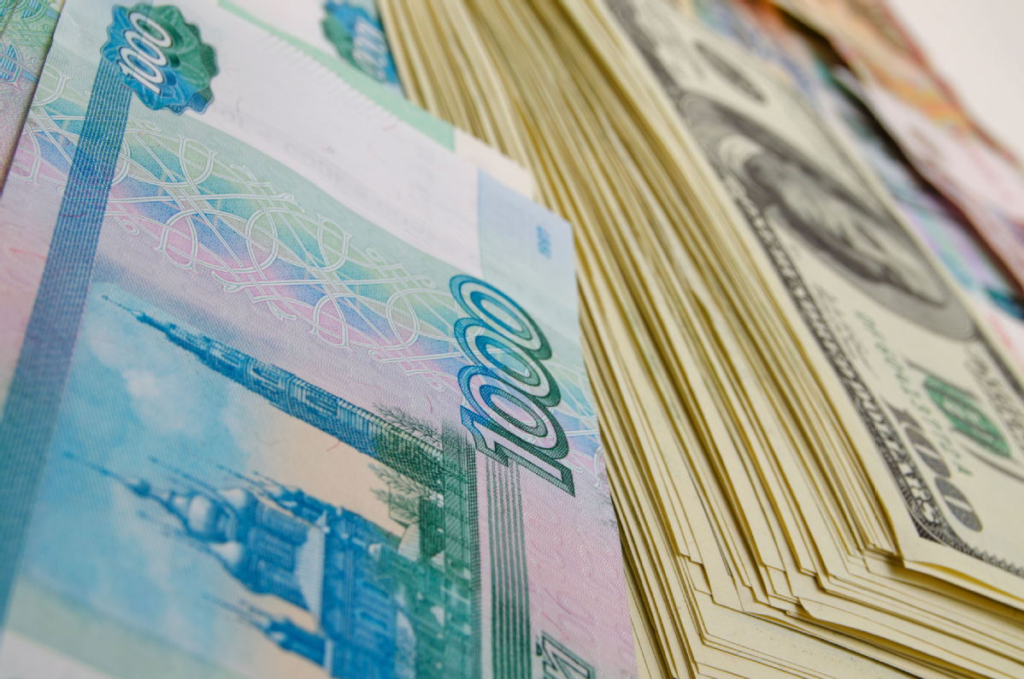De-dollarization means lessening the influence of the dollar on international marketplaces. The US dollar is being replaced as the unit of account for transactions involving energy and/or other commodities, the purchase of US dollars to cover foreign exchange deposits, bilateral trade deals, and assets denominated in the US dollar.
The US has a disproportionate quantity of power over other countries as a result of the dollar’s dominant position in the global economy.
The US has long used sanctions as a weapon to pursue its foreign policy objectives.
The de-dollarization process is motivated by the need to protect the Central Banks of the various nations from geopolitical risks, where the US dollar’s position as a reserve currency could be used as a lethal tool.
What Problems Does Dollarization Present?

Economic Sovereignty: Because the dollar dominates international commerce and provides the US government considerable influence over the world economy, many nations worry that their economic sovereignty is in danger.
Currency Manipulation: The US government is able to manipulate its currency to obtain an economic advantage over other nations because the dollar dominates international commerce.
Risk of Financial Crisis: The dollar’s hegemony in international commerce also raises this risk, as a crisis in the US economy could have repercussions for the rest of the world.
Dependence on the US: Because most international commerce is done in dollars, nations that do a lot of business with the US risk becoming overly reliant on the US economy.
Geopolitics: Some nations want to lessen their reliance on the US dollar because doing so is seen as a means to limit US control over their economies and, in some instances, as a form of defiance against US supremacy.
What Benefits Come with De-Dollarization?

Reducing Dependence on the US Dollar: Countries can lessen their reliance on the US dollar and the US economy by using other currencies or a collection of currencies, which can help to lessen the effects of US political and economic shifts on their own economies.
Enhancing Economic Stability: Countries that diversify their assets are less susceptible to changes in interest rates and exchange rates, which can enhance economic stability and lower the likelihood of financial disasters.
Increasing Trade and Investment: By using alternative currencies, nations can trade and engage more with nations that might not have close connections to the US, potentially opening up new markets and prospects for expansion.
Reducing the Influence of US Monetary Policy: By using less of the US currency, nations can lessen the impact of US monetary policy on their own industries.
What Problems Do the National Currencies Present?
National currencies face difficulties due to the fact that they are not completely transferable. Thus, the dollar continues to rule despite the emergence of alternative trading systems and numerous money transportation systems.
Currency fluctuations can make it challenging for nations to plan their economic strategies and for companies to make long-term investments. National currencies can fluctuate in value compared to the dollar.
National currencies are only occasionally used in foreign trade because the dollar is so extensively used there that national currencies have a hard time competing. This may make it more difficult for nations 4 to conduct commerce with one another and for companies to grow globally.
Dependence on the Dollar: Since many nations significantly rely on the dollar for trade and financial operations, they may be susceptible to shifts in the dollar’s worth and to US government policies.
Financial instability: Since other nations may be more vulnerable to financial problems as a result of the dollar’s hegemony in the global financial system, this can affect the security of the financial system in those nations.
The dominant position of the dollar restricts the ability of other nations to use monetary policy to stabilize their economies, which reduces their monetary autonomy.
What actions have governments in various nations taken?
Global Initiatives:
Bilateral Currency exchanges: There are currently USD 380 billion in bilateral currency exchanges between ASEAN nations, China, Japan, and South Korea.
A number of African nations also use the South African rand.
The interregional commerce between the nations of Latin America is increasing.
Initiation of Trade in National Currencies: Asian central banks trade among themselves and have over $400 billion in local currency exchange lines.
Since 2015, the BRICS New Development Bank has disbursed up to 50% of its loans in national currencies, promoting commerce and investment in those currencies.
For those involved in cross-border yuan transfers and commerce, China provides clearing and transaction services and created the Renminbi in 2015.
Initiation of Trade in National Currencies:
Asian central banks have over USD
400 billion of local currency swap
lines and trade amongst themselves.
Since 2015, the BRICS New Development Bank has disbursed up to 50% of its loans in national currencies, promoting commerce and investment in those currencies.
For those involved in cross-border yuan transfers and commerce, China provides clearing and transaction services and created the Renminbi in 2015. Due to their exclusion from the SWIFT global system, Russian institutions have begun using the China-based Cross-Border Interbank Payment System.
India’s Initiatives
As a move toward internationalizing the rupee, the Reserve Bank of India (RBI) revealed a rupee settlement system for cross-border commerce in July 2022 by permitting special vostro accounts in selected Indian banks.
What should the next step be?

Diversifying Foreign Exchange Reserves:
o Governments can reduce their dependence on
the dollar by holding a greater proportion of
their foreign exchange reserves in other
currencies, such as the Euro or the Chinese
Yuan.
Encouraging the Use of Domestic Currencies in
International Trade:
Governments can promote the use of their own
currencies in international trade by providing
incentives for businesses to use them.
Since 2019, India has been paying
Russia for fuel, oil, minerals and
specific defence imports in rupees on
an informal basis.
Creating Alternative Payment Systems: Governments can strive to create alternative payment systems that are not reliant on the dollar, like the Asian Infrastructure Investment Bank, which is headed by China.
Building Economic Alliances: Governments can establish economic ties with other nations to lessen their reliance on the currency.
Investing in Other Currencies: Governments may do so to lessen the risk of currency volatility or to challenge the dominance of the dollar.

